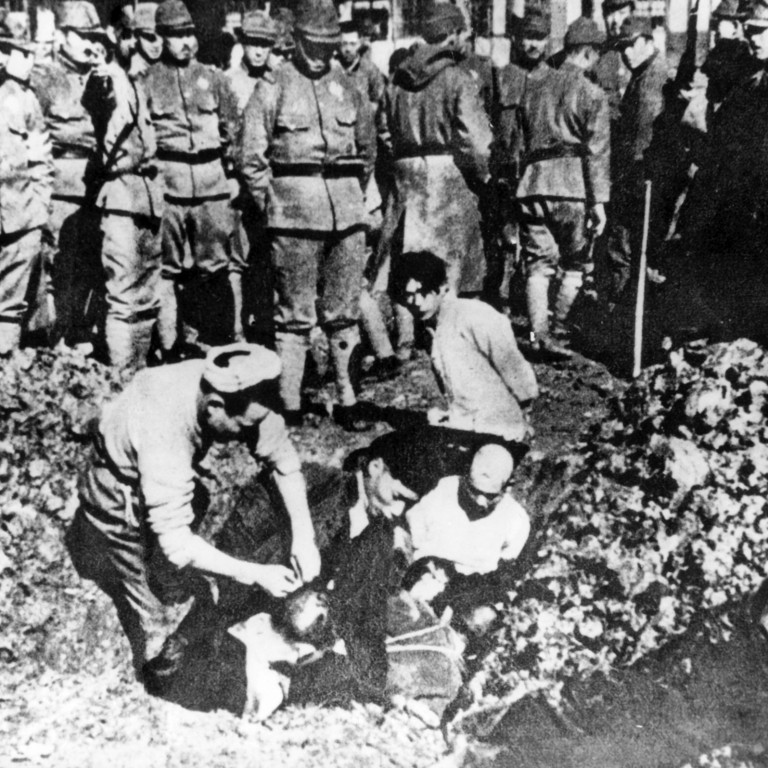
Angry Japan tells Unesco to do a better job after China submits its version of 1937 Nanjing massacre into world archives
Tokyo is confident that it has convinced Unesco to overhaul the way in which documents are selected for the Memory of the World Register, just weeks after the government here was enraged over China’s listing of papers on the 1937 Nanjing Massacre.
Hiroshi Hase, the minister of culture, addressed the General Conference of Unesco in Paris last Thursday and emphasised Japan’s position that the organisation needs to “swiftly improve governance and transparency” in the Memory of the World programme.
The following day, he had a 30-minute, closed-door meeting with Irina Bokova, the director general of Unesco, to express Japan’s concerns.
Emerging from that meeting, Hase said that he had put Japan’s proposals for reforms to Bokova, who had agreed that they “could share the direction for improvement.”

Hase also admitted that he made reference to calls from certain elements in the Japanese government and society demanding that Japan halt or reduce its contributions to Unesco.
A spokesman for the ministry in Tokyo said Hase’s comments were merely an expression of all the possible steps that the Japanese government might take and cannot be considered an ultimatum.
“Now we are thinking about all the different kinds of possibilities,” said Tazuki Fukuda, director of the Japanese National Commission for Unesco.
That “might include” rethinking Japan’s contributions, he said, adding, “We do not know what was said specifically on funding; all we are saying is that nothing should be excluded.”
Tokyo’s position is that there needs to be more “transparency” in how documents are approved for the programme, with Japan particularly concerned at the way in which the advisory committee conducts its screening process behind closed doors and without communicating with other countries involved in a particular historical issue.
Japan’s primary concern over China’s documents on the Nanjing Massacre revolves around the number of victims of the incident; China claims 300,000 died in the Imperial Japanese Army’s rampage through the city in 1937, the majority of them civilians. Japan says that figure cannot be corroborated, while some here deny that any massacre took place at all.
Others say that Japan’s mishandling of the Unesco situation has degenerated into a “diplomatic debacle” that has merely served to make Tokyo appear hypocritical.
“Japan has submitted documents on the troops who were held in Siberia after the war as it is happy to portray itself as the victim,” Professor Jeff Kingston, director of Asian Studies at the Japan campus of Temple University, said.
“Now they are accusing China of politicising Unesco after it files the Nanjing Massacre documents, which portray China as the victim, as it most certainly was,” he added.
By hinting that it is ready to withhold funding of Unesco, Hase showed that Tokyo is “playing hardball” because it feels it has the right to have a say in how the organisation operates, Prof. Kingston said, but he believes Japan’s initiative “will go nowhere good.”
“I can only see this backfiring on Japan,” he said. “They are again trying to rewrite history and glorify that shabby part of their past.
“Japan does not want to be portrayed as the perpetrator even though it is quite happy to be seen as the victim,” he said, adding that renewed comparisons with Germany - which has owned up to its past, educated new generations about the horror of the Nazi years and made genuine efforts to make amends - are inevitable.
“And Japan does not compare favourably to Germany at all,” Professor Kingston added.

